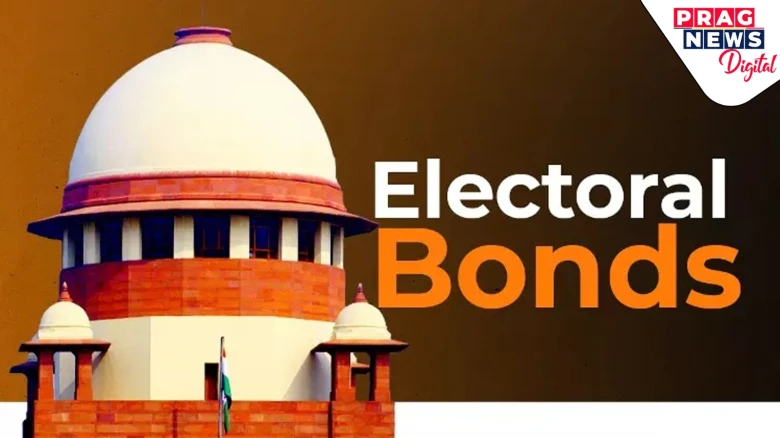A number of petitions were submitted to contest the amendments introduced by the Finance Act, 2017 that enabled the implementation of an anonymous electoral bonds scheme.
Digital Desk: In a declaration submitted to the Supreme Court in the electoral bonds case, Attorney General R Venkataramani stated that citizens do not have the right to information under Article 19(1)(a) of the Constitution about the funding of a political party. AG Venkataramani refuted the petitioners' arguments who challenged the electoral bonds scheme and said that citizens have the right to know about the funding source of a political party.
"First of all, unless there are reasonable limitations, there cannot be a general right to know everything. Secondly, the right to know as necessary for expression can be for specific ends or purposes and not otherwise," the Attorney General stated as reported by LiveLaw.
The AG argued that the judgements supporting the citizens’ right to know about the criminal histories of the candidates can not be extrapolated to grant them a right to information on the funding of political parties. He clarified that those decisions were made in the context of selecting political candidates with knowledge. However, it is not possible to read the same and comprehend that a citizen's right to funding information does not exist.
A number of petitions were submitted to contest the amendments introduced by the Finance Act, 2017 that enabled the implementation of an anonymous electoral bonds scheme.
According to the AG, the electoral bonds scheme does not impinge upon any existing rights and cannot be deemed offensive. It is impossible to overturn legislation that isn't so reprehensible for any other reason. According to the report, the AG stated, "Judicial review is not about scanning State policies to suggest better or different prescriptions."
A group of appeals contesting the electoral bond schemes are expected to be heard by the Supreme Court's five-judge constitution bench, presided over by Chief Justice DY Chandrachud, starting on October 31. Other members of the court will be Justices Sanjiv Khanna, BR Gavai, JB Pardiwala, and Manoj Misra.
The scheme was pitched as a substitute for giving money to political parties. Any Indian individual or organisation incorporated or founded in India may purchase electoral bonds by the scheme's terms. Election bonds may be purchased individually or in combination with other people.
The AG's arguments in the Supreme Court were challenged by a few opposition party leaders.
“On the eve of the hearing of the Electoral Bonds case, the BJP has made its intentions clear The BJP will raise its funds from big corporates in an opaque, secretive and conspiratorial manner. The answer to this is transparent crowd-funding from small donors through recordable digital transactions. Let's see who wins: the Big corporates or the Small citizen who takes pride in contributing to a political party,” said Congress leader and former finance minister P Chidambaram.
“Hello BJP, it is a citizen’s democratic right, moral right, ethical right to know how parties are being funded and by whom while it is the government's job to ensure transparency and accountability in the electoral process. Such a shameful argument,” said Shiv Sena UBT MP Priyanka Chaturvedi.
The first Public Interest Litigation (PIL) on the subject of purported corruption and subversion of democracy through illegal and foreign funding of political parties and lack of transparency was filed in 2017 by the non-governmental Association for Democratic Reforms (ADR).
In the meantime, the Supreme Court in April 2019 declined to stay the electoral bond scheme and in January 2020 refused to grant interim stay on the 2018 Electoral Bonds Scheme.

Leave A Comment